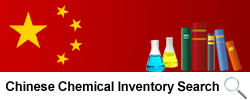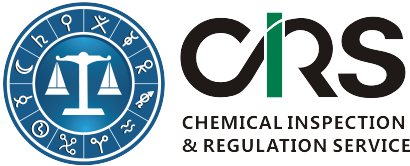
Frequently Asked Questions About Chemical Legislation in China
Updated in Dec 2011
Q: Where is a good start for me to understand chemical legislation and GHS in China?
A: CIRS's website is a very good reference. It is recommended that you start with the overview of chemical management polices in China and then move onto new chemical substance management, hazardous chemical substance management and China GHS.
You can also download this presentation from CIRS.
Q: My company exports chemical products to China. How do I comply with chemical legislation in China?
A: Firstly, you need to check if all ingredients (including polymers) in your products are listed on IECSC or not. If not, you might need to submit new chemical substance notification by appointing a local agent. Secondly, you need to check if your products contain any restricted or prohibited chemicals in China. Thirdly, you need to make sure your SDSs, packaging and labels are compliant with Chinese national standards(GHS and TDG).
Q: My substance is not listed in online IECSC database. How do I search the confidential section of IECSC?
A: To search the confidential section of IECSC, you shall submit an enquiry to the Chemical Registration Center(CRC) of MEP in written form. CRC will send a confirmation letter to you regarding whether a substance is listed in the confidential section of SDS and charge around 28 Euros per enquiry. This whole process takes 3-5 days.
CIRS can help you search the confidential section of IECSC as well. More info can be found here.
Q: In Europe, polymers are exempt from REACH registration. Is it the same in China?
In China, any polymer that is not listed on the Inventory of Existing Chemical Substances Produced or Imported in China (IECSC) will be regarded as a new chemical substance. Domestic companies shall notify the new chemical substance to the Chemical Registration Centre (CRC) prior to the manufacturing or importation. Foreign companies can notify the new polymer by appointing a local Chinese agent. Please note that even if all monomers are listed on IECSC, notification is still required if the polymer itself is not listed on IECSC.
In Europe, monomers shall be registered. In China, polymer shall be notified. More info about new polymer notification can be found here.
Q: What substances are exempt from new chemical substance notification in China?
The following four categories of chemical substances are exempt:
- Chemicals subject to other existing laws and regulations;
Radioactive substances, military industry products, pyrotechnics, biotic substances, pesticides, veterinary drugs, pharmaceuticals, cosmetics, foods, food additives, feed, feed additives, tobacco and tobacco products.
- Substances existing in nature
1. Substances that are unprocessed, or that are manufactured or processed only through the methods listed below: 1) Manual; 2) Mechanical; 3) Gravitational; 4) Soluble in water; 5) Floatation in water; 6) Heat dehydration.
2. Extracted from the atmosphere through various means;
3. Natural polymers, except for ones that are chemically modified;
- Substances of noncommercial purpose or unintentionally produced
1. Impurities; 2. Products of random reactions; 3. Products of random reactions that occur when a chemical substance, mixture, or article is in storage; 4. Products of reactions that occur when a chemical substance, mixture, or article is in final use; 5. Waste water, waste gas, solid waste, and by-products.
- Special categories
1 Glass; 2.Frit; 3. Pottery raw materials and ceramic ware; 4. Steel and steel products; 5. High-alumina cement; 6. Portland cement; 7. Articles 8. Homogeneous and heterogeneous alloys, except for metal compounds and precisely defined intermetallic compounds 9. Non-isolated intermediates.
Q: My company exports a cleaning product containing a new chemical substance to China. Do we need to notify the product or just the new chemical substance? Can we submit notifications on our own?
A: You only need to notify the new chemical substance.
Companies in China can submit new substance notification on their own or appoint a local agent to do so. Foreign companies have to appoint a local Chinese agent to submit new chemical notifications and the local agent shall be knowledgeable enough to carry out the notification. The role of the agent is very similar to the role of "only representative" under EU REACH regulation.
Note: A qualified agent has to meet 7 criteria. One of them is that the minimum registered capital of the local Chinese agent is 3 million yuan (around 330,000 Euros). China REACH has set out this requirement to avoid so called "shell" companies.
Q: Can we keep molecular formula and molecular structure confidential when we submit notifications to CRC?
A: No. Molecular formula and molecular structure are necessary for CRC to determine whether a substance is the same with one substance in IECSC. CRC has taken strict measures to ensure all documents submitted by a notified are kept confidential. All staff of CRC are well trained. There is no need to worry about the disclosure of sensitive information.
Companies can choose which part of information to be kept confidential in a notification form. For example, if CAS name is requested to be kept confidential, only generic name for a substance will appear on IECSC.
Q: Is data generated in other countries accepted by Chinese authorities for new chemical substance notification?
A: Yes, but not all of them. Some of the eco-toxicology tests must be carried out in MEP-approved eco-toxicity laboratories in China. Other tests can be carried out in domestic laboratories with certain qualifications and/or overseas testing agencies (GLP laboratories are preferred).
The laboratories based outside of China Guidance Documents for New Chemical Substance Notification in China must be certified by the local country and the copy of certificate of the laboratory must be provided. They may complete the test as per Chemical Test Guidelines (HJ/T153-2004) of China or follow better standards such as internationally renowned OECD methods and ISO standards.
Test report must be written in Chinese or in English for the minimum data required. Test reports shall indicate clear methods used and be accompanied by the accreditation materials provided by competent authorities. More info about data requirement can be found here.
Q: When is the deadline for GHS implementation in China?
A: 1 May 2011.
Q: How do I know if my product is hazardous under decree 591?
A: Any chemical product meeting GHS classification criteria will be regarded as hazardous chemicals in China under decree 591. Hazardous chemicals listed in the Catalog will be subject to extra requirements.
Q: My company exports existing hazardous chemicals to China. What should I do to comply with legislation in China?
A: You shall ensure that your SDSs, packaging and labelling meet the requirements of Chinese GHS national standards(GHS and TDG). Those standards can be found here.
Q: My company exports chemical products containing chemicals listed in the Catalog of Hazardous Chemicals to China. Do I need to apply for a license or register the hazardous chemicals under Decree 591?
A: No. Only companies based in China are allowed to apply for a license or register hazardous chemicals.
Q: Our company is based in China and one of our substances is classified as hazardous but not listed in the Catalog of Hazardous Chemicals. Do we need to register this hazardous substance?
A: Your company is recommended to carry out hazard classification test in certified labs and submit hazard identification report to the national registration centre for chemicals(NRCC). Registration is only required after NRCC has confirmed the classification.
However, it is not clear whether the submission of hazard identification report is mandatory or not.
Q: Is a domestic 24h emergency telephone number required for Chinese SDSs and labels?
A: Yes. Compulsory labelling standard GB 15258-2009 has required a 24h emergency telephone number on a label. Even though Chinese SDS standard does not specify whether a 24h telephone number is required, the telephone number on a SDS needs to be consistent with a label.
In addition to that, 24h emergency telephone number is required for registration of hazardous chemicals in China.
Q: What are the main differences between EU CLP regulation and China GHS?
A: Building blocks are different. More info can be found here.
Submit Your Questions to Us Today
- Mr. Eric Xiong, China Office
11F Building 1, Dongguan Hi-Tech Park, 1288 Chunbo Road, Binjiang District, Hangzhou 310052, China
Tel: +86-571 8720 6555 | Fax: +86-571 8720 6533
Email: eric.xiong@cirs-reach.com - CIRS Europe
Unit 1 Ardee Business Park, Hale Street, Ardee, Co. Louth, Ireland
Tel : +353 41 9806 916 | Fax : +353 41 9806 999
Email: service@cirs-reach.com



More Info and Downloads
- Training Course: The Latest Development of Chemical Legislation in China
- Guidance on New Chemical Substance Notification in China
- Frequently Asked Questions

